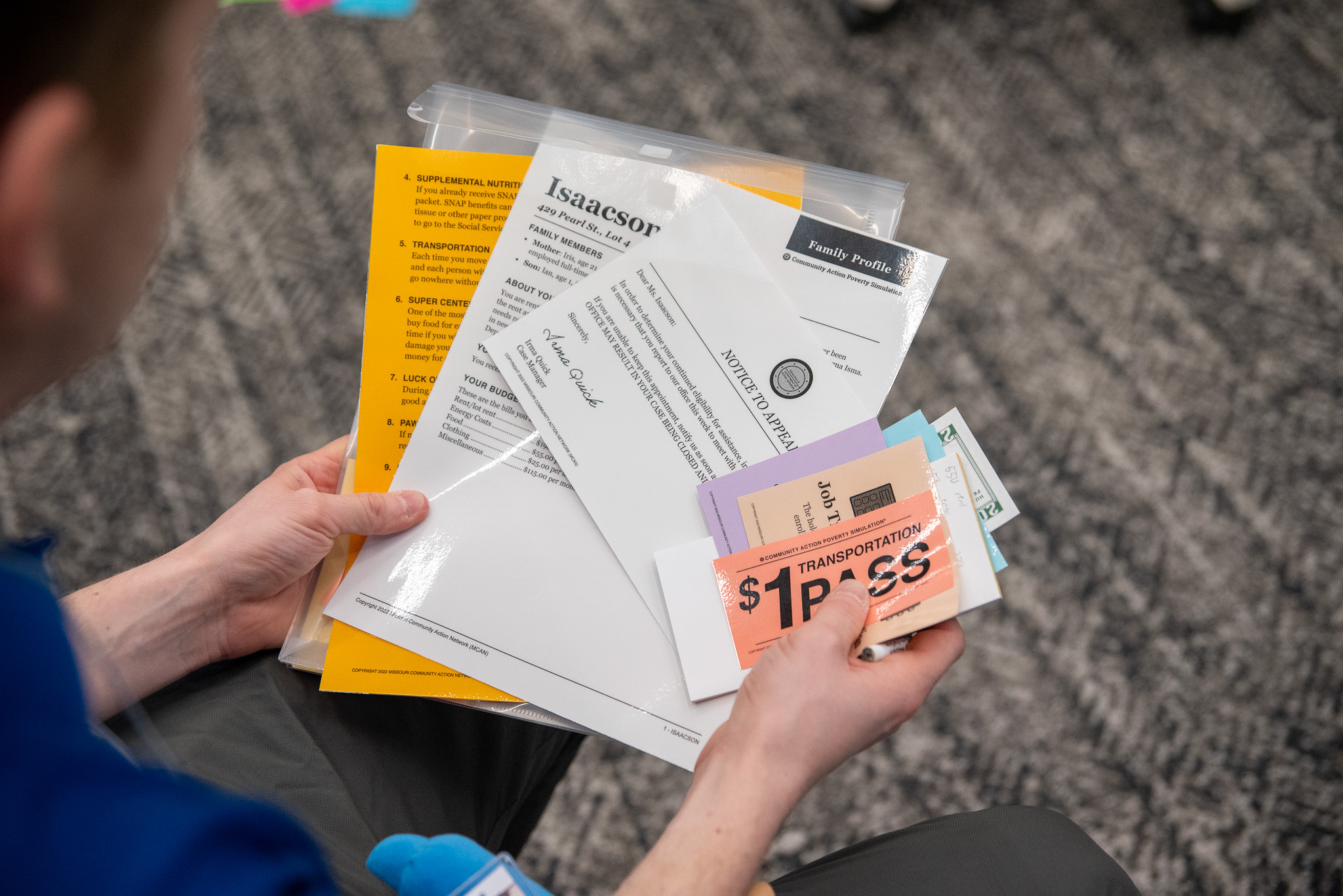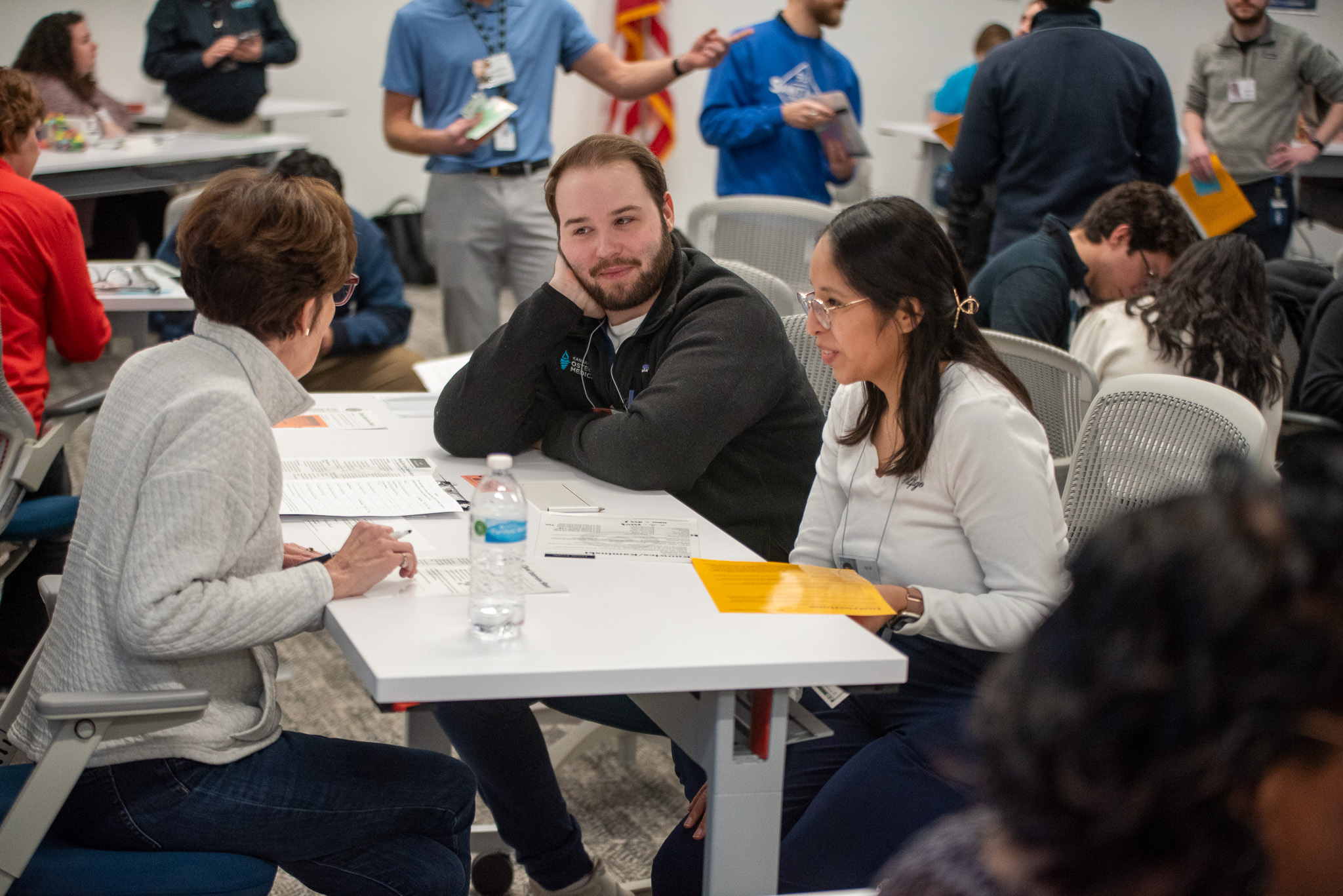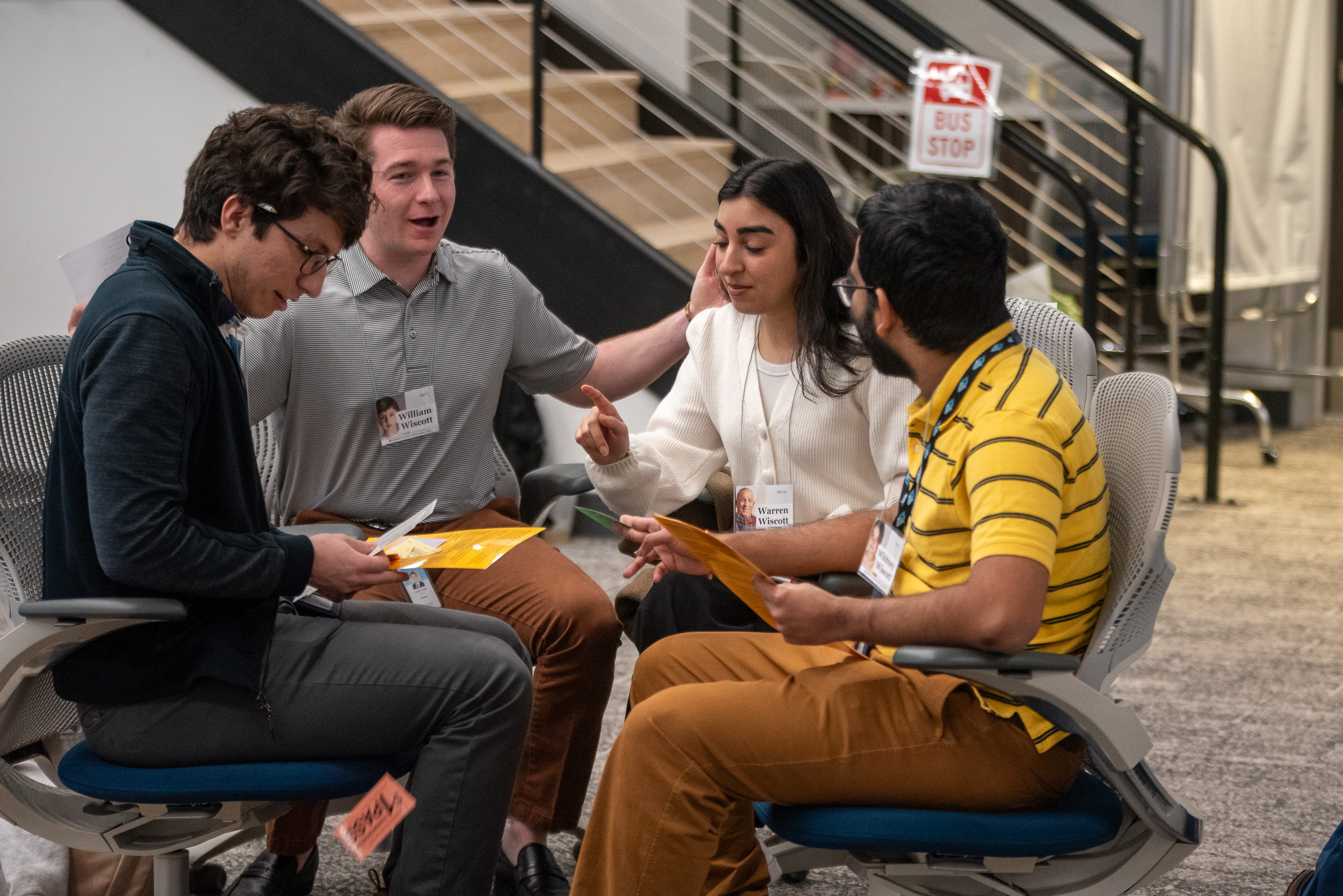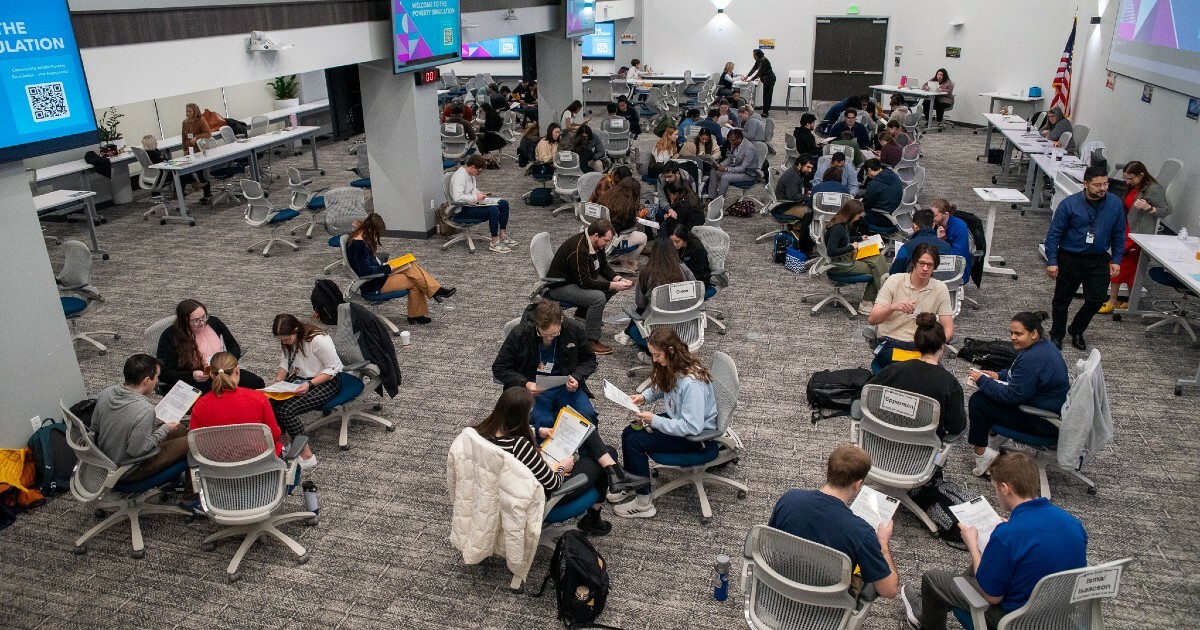At the Kansas Health Science Center-Kansas College of Osteopathic Medicine, 136 first-year osteopathic medical students recently took part in a Community Action Poverty Simulation (CAPS). The event, aligned with KHSC’s mission, aimed to deepen students’ understanding of community health challenges and inspire them to support underserved populations.
During the poverty simulation, students roleplayed as members of diverse families facing financial hardships. Groups of chairs represented homes. Bill collectors and social services were stationed around the room. The experience was complete with schools, child care services, and law enforcement. Through simulated weeks, they encountered realistic scenarios such as single parenthood, unemployment, crime, and financial insecurity. These scenarios shed light on the complexities of poverty and its impact on health.
“Simulation allows our students to practice medicine and make mistakes in a safe environment,” says Megan Bayer, director of simulation at KansasCOM. “It also provides a psychologically safe space to talk about difficult conversations. Offering these experiences now better prepares them for clinical rotations.”

A student doctor holds the packet of information they are given to begin a poverty simulation, which includes items such as character details, transportation passes, money, etc.
Guided by KHSC’s values, students approached the simulation with openness, confronting their biases. By stepping into the shoes of those facing adversity, they gained insights into underserved communities’ struggles and resilience.
Following the simulation, students engaged in a reflective debriefing session in which they shared their observations and discussed potential solutions to address systemic barriers to health and well-being. Many expressed renewed commitment to serving their communities and advocating for change.
“Understanding how socioeconomic factors impact access to health care and basic resources is crucial for any health care professional, and this experience shed light on those realities,” says Zachary Taylor, a student doctor.

Two student doctors sit at a simulated government assistance office.
The poverty simulation sparked dialogue and action highlighting the interconnection of social, economic, and health disparities. As future health care leaders, KHSC–KansasCOM students aim to address poverty’s root causes through outreach, research, and advocacy.
“It was a very eye-opening experience to see where our potential future patients are coming from and the situations they’re put in,” says Collin Garota, a student doctor. “It’s important to realize these realities when treating patients, to include their background in their treatment and to be aware of getting them the resources they really need.”
The simulation also highlighted the logistical obstacles that patients may face, prompting the future physicians to consider such factors in their practice. For instance, it is not realistic to prescribe refrigerated medicine to a homeless patient or recommend a costly brand-name medication to someone without insurance. Situations such as these emphasize the importance of understanding patients’ circumstances and tailoring care accordingly.

A group of student doctors come together as a “family” in their “home” at the end of the week, working together to figure out how to survive the next simulated week.
“Simulation offers our students an opportunity to practice key interpersonal and clinical skills needed to excel on rotations,” says Professor Bayer. “As they venture out into Western Kansas and beyond, this preparation equips them to be fantastic in their clinical endeavors.”
The poverty simulation underscored KHSC’s dedication to producing empathetic health care professionals. By immersing students in poverty’s realities, the simulation fosters empathy and humility, empowering students to make a difference for those they treat.
As they progress, KHSC–KansasCOM students are committed to serving their communities with integrity and compassion, advancing health equity for all.

